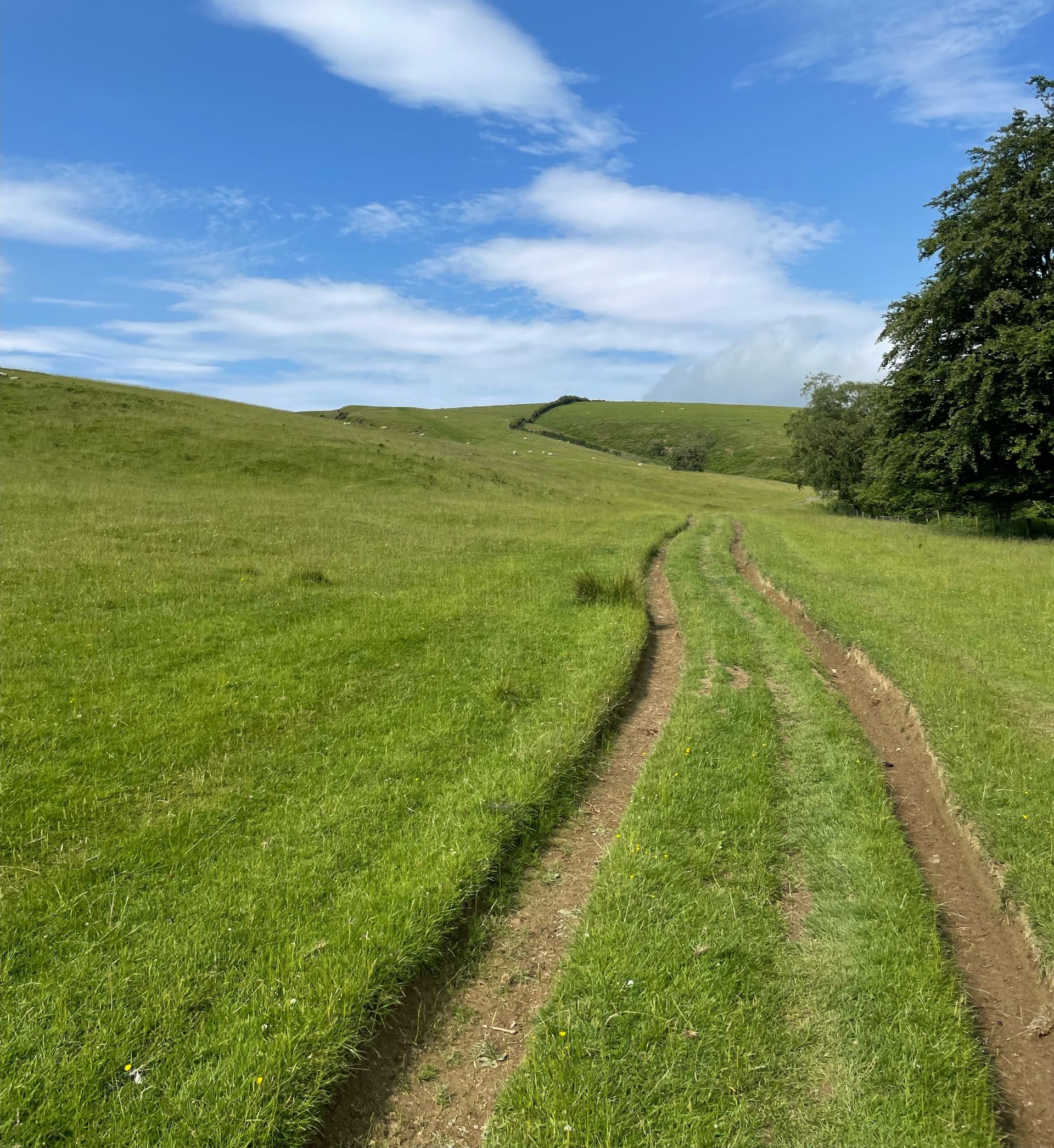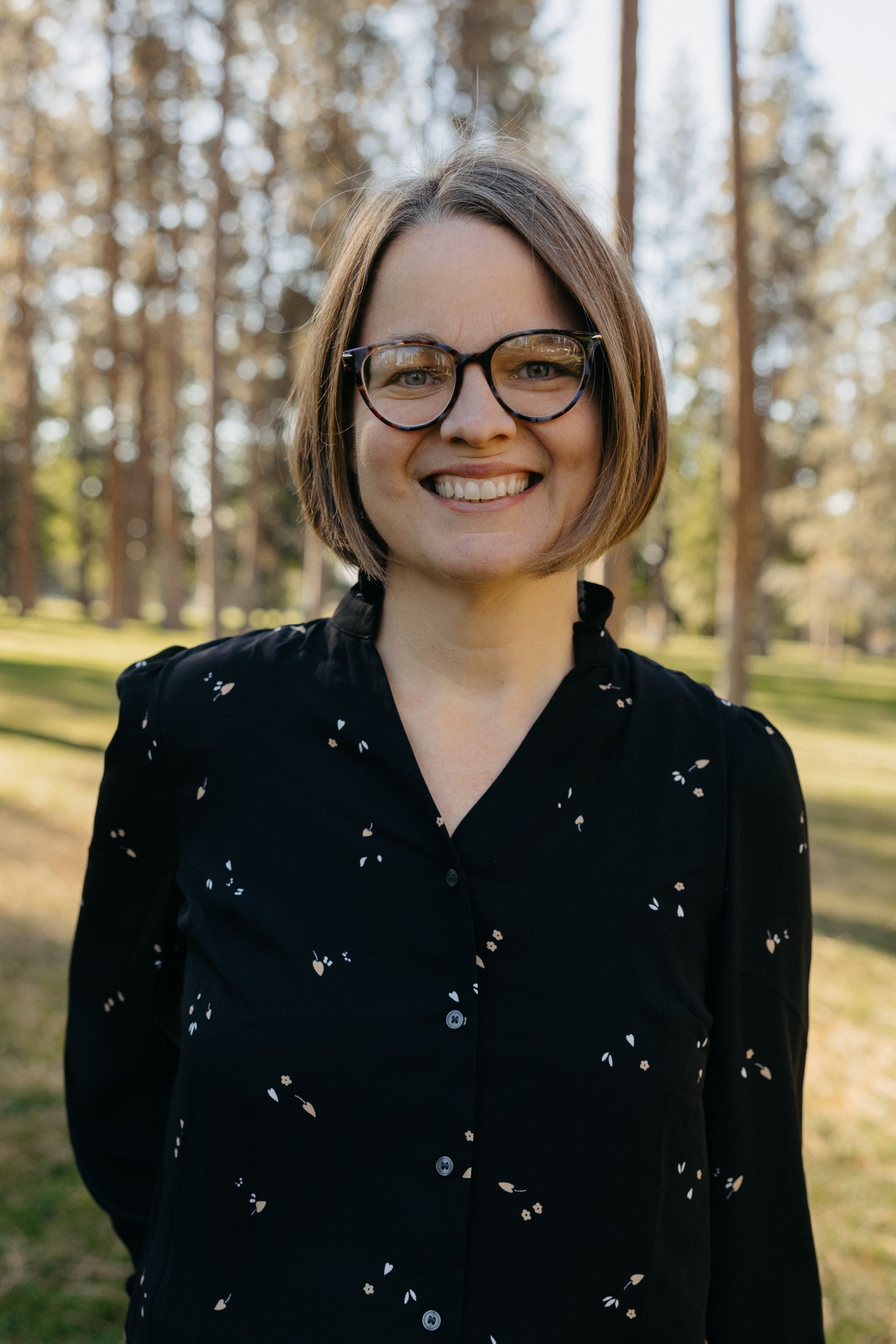The Parallel Paths of Discernment
Apr 5
/
Alyssa Bell

“You show me the path of life. In your presence there is fullness of joy; in your right hand are pleasures forevermore.” – Psalm 16:11
A Google search for the meaning of the word ‘discernment’ pulls up the Oxford Languages definition: “the ability to judge well”.
Ephesians 6:8,10 reads: “Walk as children of light…and try to discern what is pleasing to the Lord.” In this case, discern means to test and examine. I imagine a measure of curiosity accompanying the process of decision making, a commitment to noticing as one weighs the options.
While the Ephesians text fills out our definition of ‘discernment’ a bit more, I find that the actual living out of this word is much more complex. Many of us toss the idea of discernment around, as if it is either a spiritual gift that some have and some do not have, or it is only used when making a life-altering choice.
Like most faith matters, discernment is less rigid and more accessible than we imagine. The image of two parallel paths offers a way of understanding and living discernment that invites us into ‘fullness of joy,’ as the psalmist writes.
The first path is a way of being. Contemplative practices like silence, solitude, centering prayer, meditating on scripture, and embodied spirituality help us to notice the movement of the Spirit in our lives. The more we notice that movement, the more we can recognize it when it comes our way.
The other path, in parallel, and just as important, is the path of circumstantial or seasonal decisions. We will call this the path of wisdom. Considering a change in job or location, making a difficult decision about a relationship, or wrestling with a deep theological question – these are the paths that come alongside and draw upon the resources we have built up walking the path of being, such that we have the spiritual tools we need to engage faithfully with the matter at hand.
A few years ago, I had a major decision to make about a job. The answer was not obvious (at least not to me) and had big emotional and relational implications. I could only spend so much time in one sitting processing the options before I hit a wall of exhaustion in my spirit. In these moments, the Spirit reminded me to stay on my path of being.
I went through my routine. I prayed and read; I moved my body and walked the neighborhood, with no prayer agenda except to experience the sun on my face and feel the rhythm of my feet on the ground. I set the decision to the side and let the Spirit do the work. (I write this as if it were simple. It was not. These were difficult months and returning to my path of being felt more like obedience than it did embracing a fullness of joy, but the surrender allowed me to rest, and rest is an important part of discernment too).
These routines were just as important to my discernment as the singular moments of choice along the way. The Spirit worked in and through the parallel paths of discernment, pieces of my process operating in tandem.
Sometimes, we wonder what will happen if we discern incorrectly. I certainly have and did in the above example. Elizabeth Liebert’s words remind us of an important and welcome truth: “Sometimes the discernment path is straight, and sometimes it is meandering. It really doesn’t matter which, since wherever the path goes, we go there with God.”
God walks with us as our constant companion on our path of being. On our path of wisdom, God is right there helping us untangle the uncertainty and frustration. When we come out on the other side, continuing on our path of being, whether we made a choice that feels good or a choice that landed us in an unpleasant place, God has not left. God’s presence is not contingent upon our ‘right-ness’.
Discernment, it turns out, is learning to enjoy the presence and love of God, always there in every season.
1 Elizabeth Liebert, The Way of Discernment: Spiritual Practices for Decision Making. Louisville, KY: Westminster John Knox Press, 2008. p.78.
A Google search for the meaning of the word ‘discernment’ pulls up the Oxford Languages definition: “the ability to judge well”.
Ephesians 6:8,10 reads: “Walk as children of light…and try to discern what is pleasing to the Lord.” In this case, discern means to test and examine. I imagine a measure of curiosity accompanying the process of decision making, a commitment to noticing as one weighs the options.
While the Ephesians text fills out our definition of ‘discernment’ a bit more, I find that the actual living out of this word is much more complex. Many of us toss the idea of discernment around, as if it is either a spiritual gift that some have and some do not have, or it is only used when making a life-altering choice.
Like most faith matters, discernment is less rigid and more accessible than we imagine. The image of two parallel paths offers a way of understanding and living discernment that invites us into ‘fullness of joy,’ as the psalmist writes.
The first path is a way of being. Contemplative practices like silence, solitude, centering prayer, meditating on scripture, and embodied spirituality help us to notice the movement of the Spirit in our lives. The more we notice that movement, the more we can recognize it when it comes our way.
The other path, in parallel, and just as important, is the path of circumstantial or seasonal decisions. We will call this the path of wisdom. Considering a change in job or location, making a difficult decision about a relationship, or wrestling with a deep theological question – these are the paths that come alongside and draw upon the resources we have built up walking the path of being, such that we have the spiritual tools we need to engage faithfully with the matter at hand.
A few years ago, I had a major decision to make about a job. The answer was not obvious (at least not to me) and had big emotional and relational implications. I could only spend so much time in one sitting processing the options before I hit a wall of exhaustion in my spirit. In these moments, the Spirit reminded me to stay on my path of being.
I went through my routine. I prayed and read; I moved my body and walked the neighborhood, with no prayer agenda except to experience the sun on my face and feel the rhythm of my feet on the ground. I set the decision to the side and let the Spirit do the work. (I write this as if it were simple. It was not. These were difficult months and returning to my path of being felt more like obedience than it did embracing a fullness of joy, but the surrender allowed me to rest, and rest is an important part of discernment too).
These routines were just as important to my discernment as the singular moments of choice along the way. The Spirit worked in and through the parallel paths of discernment, pieces of my process operating in tandem.
Sometimes, we wonder what will happen if we discern incorrectly. I certainly have and did in the above example. Elizabeth Liebert’s words remind us of an important and welcome truth: “Sometimes the discernment path is straight, and sometimes it is meandering. It really doesn’t matter which, since wherever the path goes, we go there with God.”
God walks with us as our constant companion on our path of being. On our path of wisdom, God is right there helping us untangle the uncertainty and frustration. When we come out on the other side, continuing on our path of being, whether we made a choice that feels good or a choice that landed us in an unpleasant place, God has not left. God’s presence is not contingent upon our ‘right-ness’.
Discernment, it turns out, is learning to enjoy the presence and love of God, always there in every season.
1 Elizabeth Liebert, The Way of Discernment: Spiritual Practices for Decision Making. Louisville, KY: Westminster John Knox Press, 2008. p.78.

Alyssa Bell
Alyssa Bell is a pastor at Emmanuel Presbyterian Church in Spokane, WA where she lives with her husband Matthew and daughters Theresa and Susie. While serving the church, which she loves, she pursues complimentary vocational avenues like teaching and spiritual direction.Alyssa is also the author of Calm and Quiet My Soul: A Holistic Approach to Spiritual Care for the Mothering Pastor. She completed her Doctor of Ministry degree in Leadership and Spiritual Formation in 2021 (Portland Seminary) and the Spiritual Direction Training Program through the Companioning Center in 2022.
She has a heart for mothers who minister, either in a church setting or elsewhere. For fun Alyssa enjoys walking, making music, reading mystery novels, and completing puzzles.
website: https://www.calm-my-soul.com/

